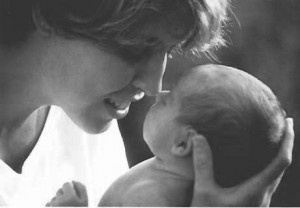Death is part of our lives, and the Gospel reminds us that we know not the day or the hour of our demise. And so it was this year when a professional colleague of mine and then an old friend both died sudden deaths. One was young; the other old. One died with a massive heart attack; the other with a massive stroke. Neither knew the day nor the hour.
Their deaths came to mind on a recent morning when I was with a group of pro life workers in front of an abortuary, begging for the lives of innocent babies. On that beautiful spring morning fifteen women came to the place of killing to hand their babies over to the abortionists to be killed. They came with a family member, a friend, and a few with the father of the child. Many came alone, except for the child in their wombs.
As they drove into the abortuary parking lot and parked we offered help, both financial aid and counseling. Mainly we offered hope, and our witness that life is sacred and that the real solution to their “problem” was not the sharp edge of the abortionist’s knife. But there were no changed minds or hearts that day. They all went in for their appointment with death. They had made their bargain with darkness, and chose to keep that bargain. None wanted to hear the words of hope and life.
What a difference between what I witnessed that morning, and the two men who had died so suddenly. At the abortuary death is not unexpected or sudden. It is planned — like that on death row — although the child to die is innocent and is given no trial where someone may advocate for his or her life. Here the family delivers their family member for death. There is no love. No wish that they could have with them any longer.
In stark contrast, the deaths of my colleague and that of my friend were without warning. Out of the blue. The tears that were shed by their loved ones were occasioned by the untimely loss of someone whom they wanted to live, someone for whom they ache even now and would sacrifice much to have with them for even a little while longer.
As I stood there that day in front of the abortuary, watching the procession of death I was sad. I recalled the words of Jesus in the Gospel of St. Luke when on that first Palm Sunday He travelled down from the Mount of Olives on His way to Jerusalem. Tradition holds that he stopped at about where the church known as Dominus Flevit (“The Lord wept”) now stands, and looked out over the Kidron Valley to the city of Jerusalem that lay before him. “As he drew near, he saw the city and wept over it, saying, ‘If this day you only knew what makes for peace–but now it is hidden from your eyes. For the days are coming upon you when your enemies will raise a palisade against you; they will encircle you and hem you in on all sides. They will smash you to the ground and your children within you, and they will not leave one stone upon another within you because you did not recognize the time of your visitation.’ Luke 19:41-44”
Is there any question that the abortionists are the enemies of the dignity of these women and the life within in them? Is there any question but that the abortionists will enclose these mothers within the palisades of their death chamber, and encircle and hem them in to kill their innocent children? Is there any doubt that these mothers aborting their children will ultimately be smashed to the ground with shame and guilt, just as they allowed the abortionists to smash the lives of the children within them? Is there any doubt that in some way, in some form, and at some time the foundation of their being and the core of their souls will be rocked by the enormity of the horror of killing their own innocent children, whom they did not recognize as the visitation of the Creator’s love? If they only knew what makes for peace.
(© 2011 Robert J. Gieb)




